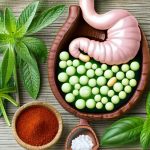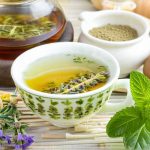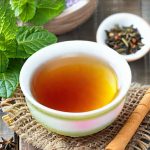Gas is a common digestive issue that can cause discomfort, bloating, and even pain. Many factors contribute to excessive gas, including diet, eating habits, stress levels, and underlying health conditions. While over-the-counter remedies exist, many individuals are turning to natural alternatives like herbal teas for relief. These teas offer gentle, soothing properties that can help ease digestive distress and promote overall gut health. This article will explore the benefits of specific herbal teas known to aid in gas relief and provide guidance on their usage.
The appeal of herbal teas lies not only in their potential to alleviate symptoms but also in their generally mild nature and pleasant taste. Unlike some medications, many herbal teas are free from harsh chemicals or side effects when consumed responsibly. They can be a comforting part of a self-care routine focused on digestive wellness. It’s important to remember that individual responses to herbal teas may vary, and what works for one person might not work the same way for another.
Understanding Gas and Digestion
Gas in the digestive system is a natural byproduct of food breakdown. However, excessive gas can be very uncomfortable. Several factors influence gas production including certain foods (beans, broccoli, onions), swallowing air while eating or drinking, and imbalances in gut bacteria. Addressing these contributing factors alongside supportive measures like herbal teas can offer comprehensive relief.
Herbal teas work by addressing different aspects of digestion – some soothe the digestive tract, others reduce inflammation, and still others help to move gas through the system more efficiently. Understanding how each tea functions allows for a more targeted approach to finding the right solution.
Popular Herbal Teas for Gas Relief
Several herbal teas have long been used traditionally to alleviate gas and bloating. Peppermint, chamomile, ginger, fennel, and anise are among the most popular choices, each possessing unique properties that contribute to digestive comfort. These teas can be enjoyed warm or cool, depending on preference, and are often caffeine-free, making them suitable for any time of day.
Peppermint Tea: A Soothing Remedy
Peppermint tea is perhaps the most well-known herbal remedy for digestive discomfort. It contains menthol, a compound known to relax the muscles in the gastrointestinal tract. This relaxation can help move gas through the system more easily and reduce cramping associated with bloating. Studies suggest peppermint oil, which shares similar properties to peppermint tea, can be effective in relieving symptoms of irritable bowel syndrome (IBS), where gas is often prominent.
It’s important to note that while generally safe for most people, peppermint may not be suitable for individuals with gastroesophageal reflux disease (GERD) as it can sometimes relax the esophageal sphincter allowing stomach acid to flow back up. Start with a small amount and observe how your body responds.
Ginger Tea: Warming Digestive Support
Ginger tea is celebrated for its ability to aid digestion and reduce nausea, but it also plays a role in gas relief. Ginger contains compounds like gingerol which promote gastric emptying – the rate at which food moves from the stomach to the small intestine. Faster gastric emptying can help prevent fermentation of food in the gut, reducing gas production. It also has anti-inflammatory properties that soothe the digestive tract.
The warming nature of ginger tea makes it particularly comforting during periods of digestive distress. You can use fresh ginger root sliced and simmered in water or opt for commercially available ginger tea bags.
Chamomile Tea: Calming and Anti-Inflammatory
Chamomile tea is renowned for its calming effects, but its benefits extend to digestive health as well. It possesses anti-inflammatory properties that can soothe an irritated digestive tract reducing bloating and discomfort. It also has carminative qualities, meaning it helps to expel gas from the body. Chamomile’s gentle nature makes it a good choice for those with sensitive stomachs.
Chamomile tea is often enjoyed before bed due to its relaxing effects, making it a dual-purpose remedy – promoting both digestive comfort and restful sleep. It’s generally well-tolerated but individuals allergic to ragweed should exercise caution as cross-reactivity can occur.
Ultimately, finding the most effective herbal tea for gas relief is a matter of individual experimentation. Start with small amounts, observe your body’s response, and consider incorporating these teas into a holistic approach that includes dietary adjustments, mindful eating habits, and stress management techniques to support overall digestive wellness. Remember to consult with a healthcare professional if symptoms are severe or persistent.


















